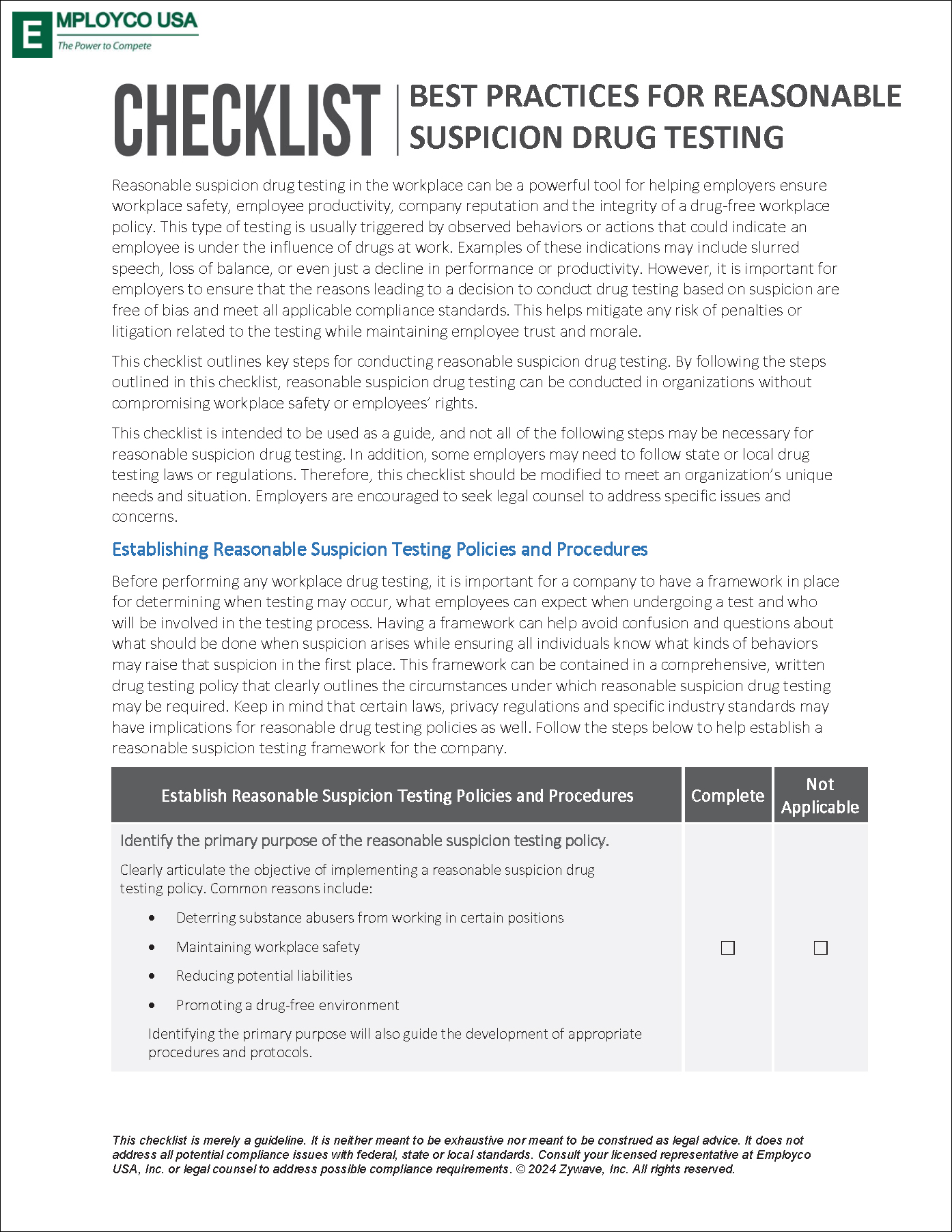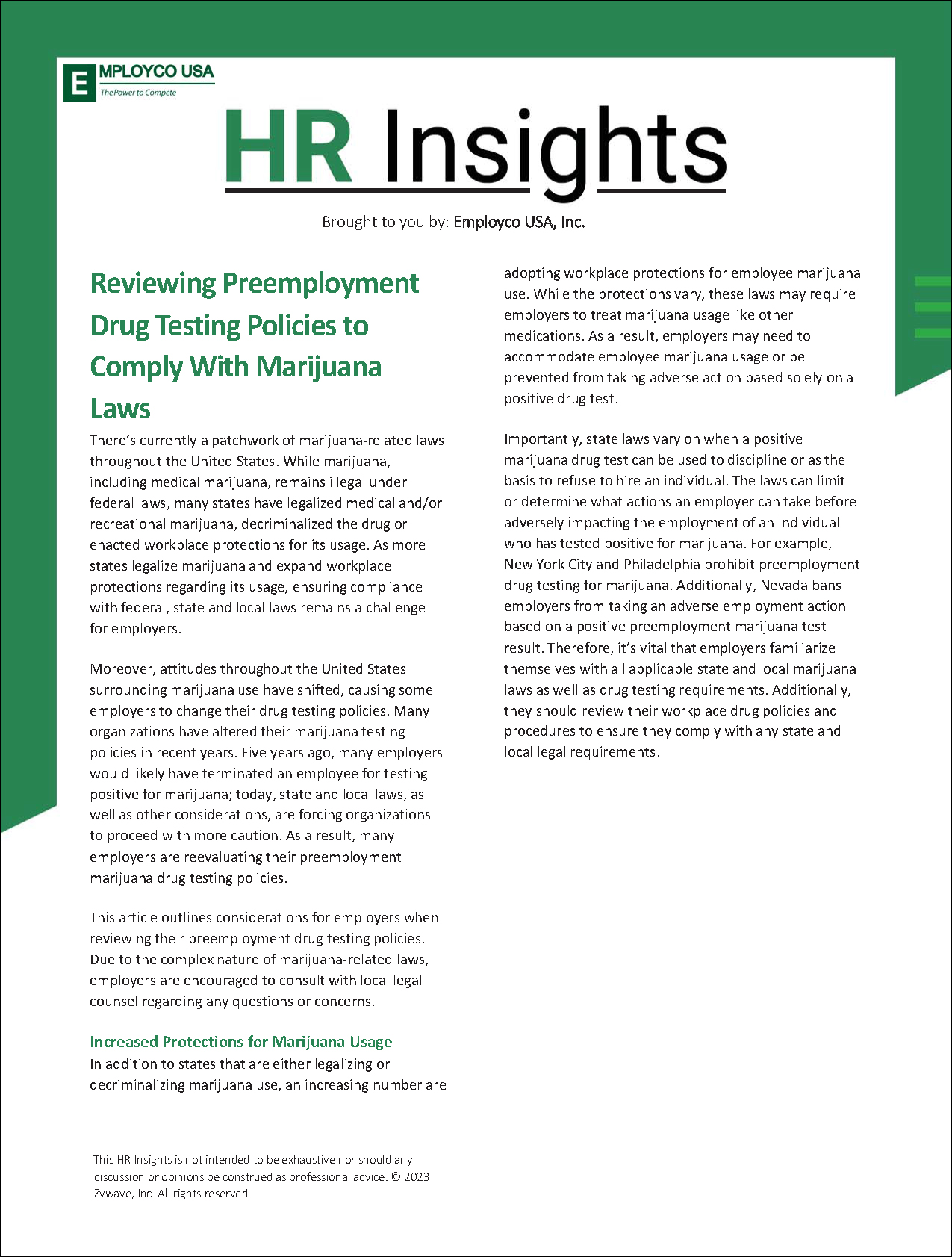
Workplace drug testing programs are designed to help maintain a safe work environment by identifying and discouraging drug use. Since the 1980s, when companies began implementing drug tests, there has been a consistent decline in drug use among employees who are tested. Determining the appropriate utilization for drug tests is crucial for selecting the right drug testing solution for your organization. The most common reasons for conducting drug tests are pre-employment screenings, random, post-accident, and reasonable suspicion.
Two key topics related to workplace drug testing are:
Best Practices for Reasonable Suspicion Drug Testing – This type of testing is usually triggered by observed behaviors or actions that could indicate an employee is under the influence of drugs at work. Examples of these indications may include slurred speech, loss of balance, or even just a decline in performance or productivity. However, it is important for employers to ensure that the reasons leading to a decision to conduct drug testing based on suspicion are free of bias and meet all applicable compliance standards.
Click the following link to access our new checklist: Best Practices for Reasonable Suspicion Drug Testing

Pre-employment Drug Testing of Marijuana – There’s currently a patchwork of marijuana-related laws throughout the United States. While marijuana, including medical marijuana, remains illegal under federal laws, many states have legalized medical and/or recreational marijuana, decriminalized the drug or enacted workplace protections for its usage. As more states legalize marijuana and expand workplace protections regarding its usage, ensuring compliance with federal, state, and local laws remains a challenge for employers.
Click the following link to read our HR Insights article: Reviewing Pre-employment Drug Testing Policies to Comply with Marijuana Laws

Contact us today for assistance with your organization’s drug testing program.